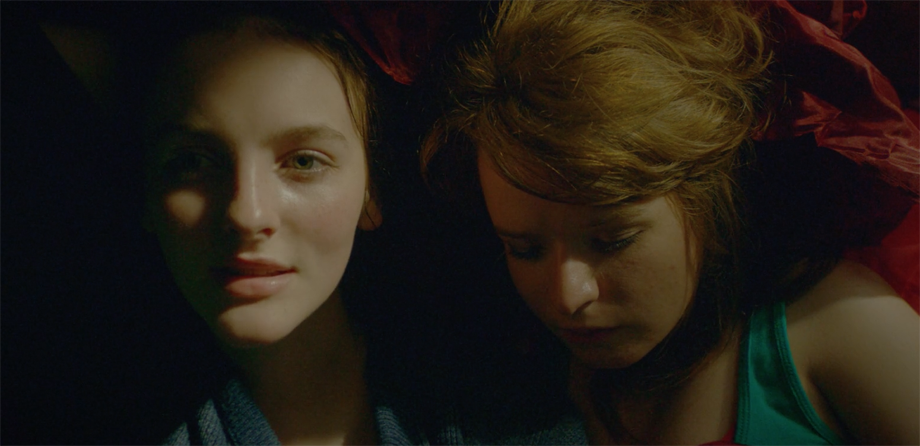Berlinale 2018
roundup, part one
Same procedure, different year: first you can’t wait for the program to finally be ready and eventually presented, followed by a lot of eye rolling and trash talk about the insane quantity and assumed lack of quality of the selected films, discussions about worn-out superstructures and a shortage of contemporary style compared to Sundance and Rotterdam - the other two film festivals early on in the year. And while this is all true and grossly exaggerated, it’s safe to state that the Berlinale hardly ever worked any other way within the last decades. The festival never was too interested in genres and show values - maybe as a result of its complex historical background - it’s more of a consciously understated cinematic playground fueled by a weird kind of educational task, where the actual fun factor grows proportional to your low expectations. If you’re willing to get rid of the cinematic language you’re usually communicating with, you’ll certainly get rewarded with a few unexpected discoveries that could easily turn into future favorites anytime soon. So, yeah, one could say that 2018 was business as usual at Berlinale. Anyway, here’s a few flicks we watched:
ISLE OF DOGS by Wes Anderson
Set twenty years into the future in Megasaki City, Wes Anderson’s highly-anticipated second stop-motion extravaganza tells the story of a Japanese boy’s quest to rescue his beloved pet. Yep, that’s pretty much it. Oh, and there’s a canine genocide, manifold political intrigues, a toxic island made from trash, robo-dogs and Yoko Ono. What would’ve turned into conventional, cuddly family entertainment in the hands of basically any other human being on this planet gets transformed into a detail-obsessed, multi-layered tale, high on movie-references, sly humor and exuberant ideas by Anderson and his impressively star-fueled voice team. In fact “Isle of Dogs“ is such a singular creative vision, it becomes pretty evident after ten minutes into the film that it demands a second (and third) viewing.
DAMSEL by David & Nathan Zellner
Three years after the beautiful “Kumiko, the Treasure Hunter“, the Zellner brothers return with an unforeseeable slice of oddball cinema, whose (admittedly) great A-list leads (Mia Wasikowska and Robert Pattinson) probably were the only reason to assure its entry into the Competition section of this year’s Berlinale. “Damsel“ isn’t a bad film though, it’s just pretty hard to pin down what kind of film it actually is since it’s neither a homage to the Western genre nor exactly a parody. There’s even a bunch of great side characters - Robert Forster’s preacher and Joseph Billingiere’s Zacharia in particular - still the whole thing is a bit boring in places yet delightfully deadpan in others, like an inside joke that’s almost impossible to translate to a wider audience.
KISSING CANDICE by Aoife McArdie
The last years have already proved that the most unexpected festival gems can be found in the Generation 14plus section - and McArdie’s debut feature “Kissing Candice“ easily confirms this. Having delivered some top-level commercials and jaw-dropping videos for artists like Jon Hopkins, the Irish writer/director offers a very different and visually striking coming-of-age story, in which the disappearance of a young boy in a sleepy small town plays catalyst to a nightmarish tale about lust, love, longing, guilt and regret. Advocates of the extraordinary will understand the film as a very rewarding experience while the rest of the audience will start pointless discussions about style over substance.
SHUT UP AND PLAY THE PIANO by Philipp Jedicke
The doc on Chilly Gonzales, which basically chronicles the career of the brilliant entertainer, is a bit of a double-edge sword since it’s rather unlikely to appeal to anyone who hasn’t heard of his music before, yet it doesn’t necessarily reveal anything new to his fans - as it should have. The artist formerly known as Jason Beck seemingly isn’t too interested in sharing essential behind-the-curtain moments, but maybe that’s because he’s trapped in a creative purgatory somewhere between genius and lunacy, doomed to never not perform. Having said that: Although the first few sentences of this wannabe-review suggest that “Shut Up And Play The Piano“ turned out to be a failure (as director Jedicke allegedly wasn’t able to resist Gonzales’ charisma and creative diktat) when in actuality it might offer the most enjoyable 90 minutes you will have all year.
MADELINE’S MADELINE by Josephine Decker
Writer/director Decker’s third feature isn’t necessarily an easy watch, but once you decide to succumb to the unusual story it will sure pull you in until the end credits roll. On paper it could’ve easily played out as a dark thriller on adolescent psychosis: a mentally ill teenager (a fearless Helena Howard) who’s torn between her well-meaning yet overprotective mother (a great Miranda July) and her self-absorbed acting coach (Molly Parker) with an uncertain outcome. However, the result is something very different and entirely its own, as if you’re not sure whether the experimental theater you’ve just witnessed is a sensational or downright horrific experience due to the unfiltered, raw emotions on display.
HUMAN, SPACE, TIME AND HUMAN by Kim Ki-Duk
The arthouse provocateur is back with another idiosyncratic allegory about how fucked up and doomed mankind is - and he just loves to blindly ram his wisdom down the audience’s throats. The Korean director created a microcosm on a scrapped battleship, a kind of petri dish that cultivates the worst in human behavior: misogyny, totalitarianism, destructivism, barbarism - the whole package. In the end it’s either the fittest or the purest soul who will survive until the viscous circle starts again. And again. And again. Compared to his earlier, ambivalent and powerful films like “Seom“, “Address Unknown“ or “Bad Guy“, this simplistic, cliché-heavy tale underlines that the director has lost his magic touch quite a long time ago already.







